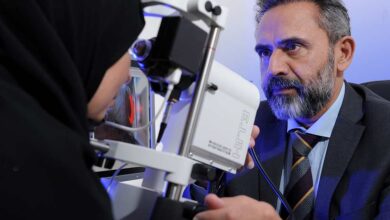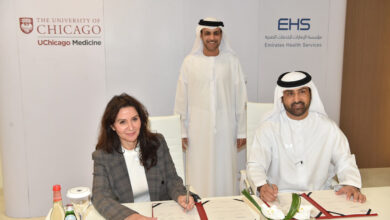Decade of achievement for WCM-Q’s Institute for Population Health
The Institute for Population Health (IPH) at Weill Cornell Medicine-Qatar (WCM-Q) has celebrated its 10th anniversary of advancing population health in Qatar, the wider region and beyond.
“We established the IPH to support the goals set out in Qatar National Vision 2030 to proactively support and improve the health of all people in Qatar through pioneering research, evidence-based public health interventions, educational health programs targeted at all demographics, and by generally empowering the community with the skills and knowledge to live healthy, happy and long lives,” explained Dr. Ravinder Mamtani, Vice Dean for Population Health and Lifestyle Medicine, who co-founded the IPH in 2011 under its original name of the Division of Global and Public Health.
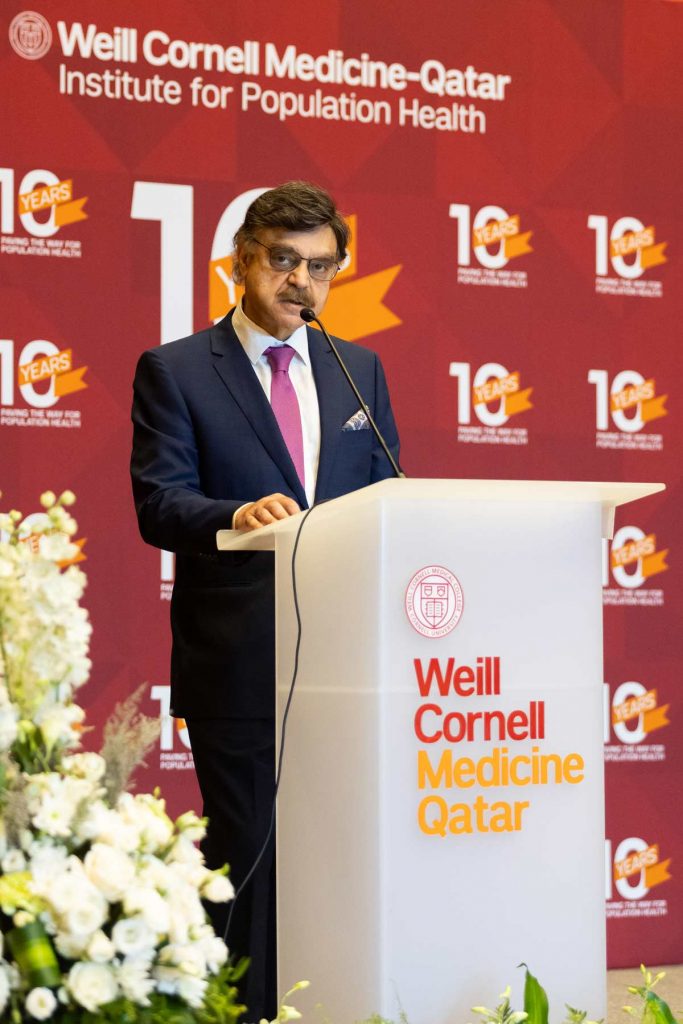
Throughout its decade of operation, the IPH has taken a multi-faceted approach to enhance human health by supporting programs that tackle non-communicable diseases – such as type 2 diabetes, heart disease, and obesity – and emerging challenges such as COVID19. The IPH pursues this goal by conducting groundbreaking research and implementing evidence-based initiatives to promote healthy lifestyle habits (following a healthy diet, tobacco cessation, taking regular exercise, managing stress, developing positive relationships), promoting road safety and encouraging personal hygiene practices. These measures are of critical importance because preventable lifestyle-related diseases are now the biggest cause of premature mortality worldwide and are of concern in the Gulf region.

Dr. Sohaila Cheema, Assistant Dean for the Institute for Population Health, said: “We have always believed that health problems are best addressed by cooperative approaches, guided by scientific evidence and executed through community engagement. Ultimately, we aim to improve both longevity and quality of life for all members of the community, and to bridge research gaps where they exist. We are extremely gratified by the success we have enjoyed in these endeavors over the past ten years and heartened by the way the community groups we have engaged with have responded with such positivity.”
Speaking at a ceremony to mark the 10th anniversary, Sheikh Dr. Mohammed Bin Hamad Al-Thani, Director of the Public Health Department at the Ministry of Public Health and Associate Professor of Clinical Population Health Sciences at WCM-Q, said: “I have closely followed your progress and achievements over the last decade and have been impressed by your commitment and devotion to promoting population health in Qatar and beyond. Initiatives tailored to the needs of our community have yielded tremendously positive results and it has been my pleasure to participate and contribute with you on many successful health programs and activities. I congratulate all of you for your dedication, hard work and determination. Looking to the future, the Public Health Department at the Ministry of Public Health looks forwards to working with the Institute for Population Health on many new projects that will help us achieve our common aspirations and further contribute to the goals of Qatar National Vision 2030 and the health of people right across our region and beyond.”
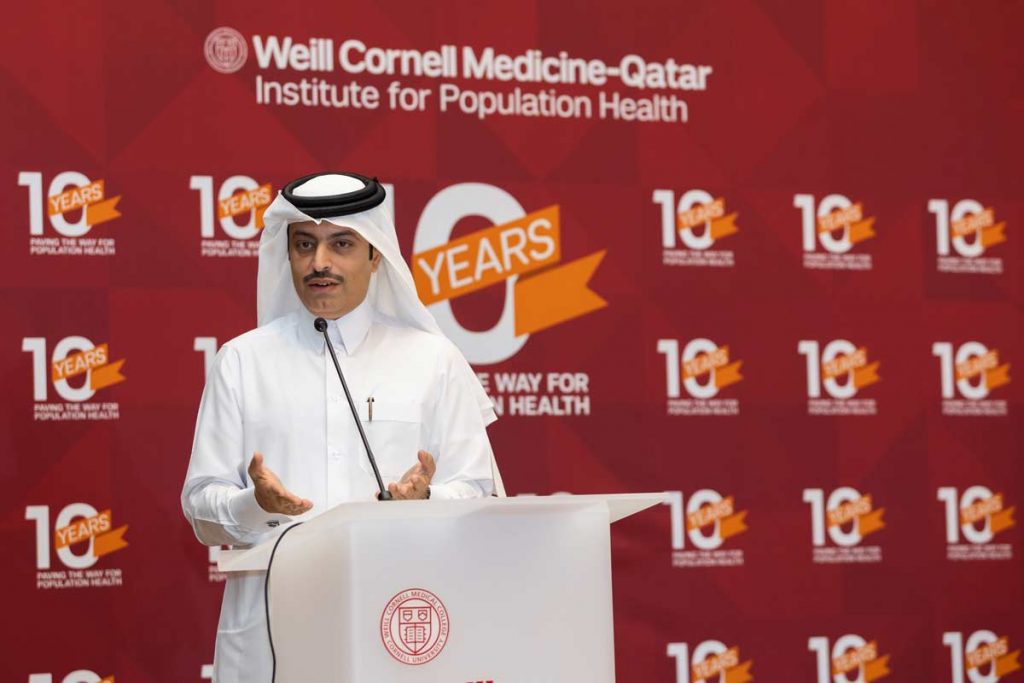
Dr. Javaid Sheikh, Dean of WCM-Q, said: “I offer my warmest congratulations and thanks to our dedicated team of professionals in the Institute for Population Health. For ten years they have worked with great imagination, energy and diligence to enhance the health of the population, both here in Qatar and beyond. I am certain the IPH will continue to thrive for many years into the future, helping to improve quality and length of life for all members of our global community.”
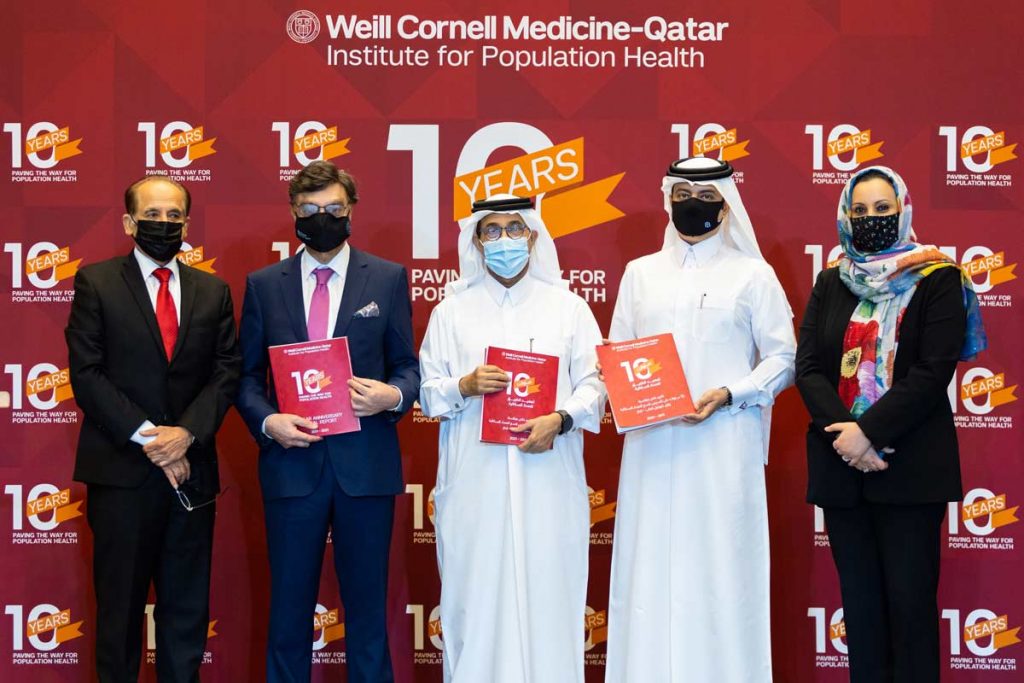
The IPH goes into schools and local businesses and engages with community groups to share information and guidance about healthy lifestyles, as well as offering a wide variety of courses, seminars and workshops for healthcare professionals and researchers. For example, the IPH runs an innovative Certificate in Lifestyle Medicine program, established in 2020. To date, the certificate program has provided 130 healthcare professionals with evidence-based guidance on lifestyle medicine education to evaluate, prevent, treat, and reverse lifestyle-related diseases. The Institute supports the International Board of Lifestyle Medicine (IBLM) in administering its examination, which has thus far allowed 35 physicians and other healthcare professionals to gain IBLM certification. The IPH also offers workshops on Understanding the Basics of Health Research, and an introduction to systematic reviews.
The faculty and staff of the IPH also contribute to WCM-Q’s pre-medical and medical program, enabling future physicians to look outside of mainstream medicine to appreciate the impact of public health approaches, lifestyle factors, the environment and social determinants on the overall health of populations. Furthermore, the IPH also provides short-term global health experiential opportunities for WCM-Q’s students to visit other countries, such as Tanzania and Vietnam and elective opportunities worldwide via Global Educational Exchange in Medicine and the Health Professions (GEMx), which allows students to gain a first-hand understanding of global health issues and the challenges of providing healthcare in underserved populations. In addition, with the onset of the COVID-19 pandemic, the IPH moved swiftly to adapt, engage, and contribute during the global emergency. The team disseminated credible information related to COVID-19 and helped raise awareness among the public during the early stages of the pandemic. As the crisis continued, the IPH published several peer-reviewed research papers on the health and well-being of society during the pandemic.
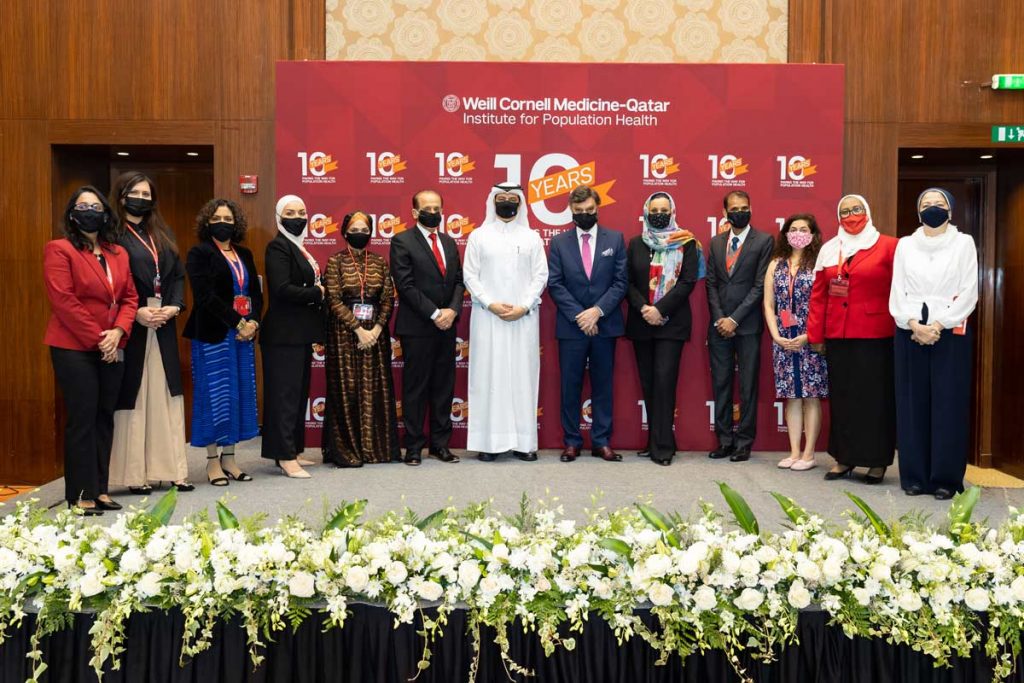
In the realm of research, the IPH has published 61 publications including book chapters and papers in high-profile international medical journals on a wide variety of subjects, including road safety in Qatar, the impact of waterpipe smoking on health, obesity, type 2 diabetes, physical activity and sedentary lifestyles in the MENA region, COVID-19, and mental illness in the MENA region. Other topics include social determinants of health and disease, capacity building, public health policy, and migrant health, among many others. The IPH is also home to the Center for Cultural Competence in Health Care, which provides healthcare professionals with courses in medical interpretation, emotional intelligence and cultural competence to ensure patients in a multicultural and multilingual environment such as Qatar receive the very best healthcare possible. To date, the CCCHC has trained 354 medical interpreters in Qatar, improving access to healthcare for speakers of a total of 24 world languages, including Arabic, Malayalam, Tagalog, French, Mandarin, Farsi, Hindi, Urdu and Tamil.
In addition to Dr. Mamtani and Dr. Cheema, the IPH team comprises Dr. Karima Chaabna, Dr. Amit Abraham, Dr. Ziyad Mahfoud, Ms. Raji Anand, Ms. Yasmeen Kalverts, Ms. Samaah Shaams Chalil, Ms. Anupama Jithesh, Ms. Maha Elnashar and Ms. Huda Abdelrahim. The IPH team is highly engaged with the local healthcare community through the Lifestyle Medicine Interest Group – Qatar (LMIG-Q), which Dr. Mamtani and Dr. Cheema established in 2018. The LMIG-Q supports and cultivates a community of dedicated professionals who strive to promote healthy behaviors and lifestyles, reduce the burden of disease, and improve the health of future generations. Currently, the LMIG-Q has more than 700 members and is growing all the time.













